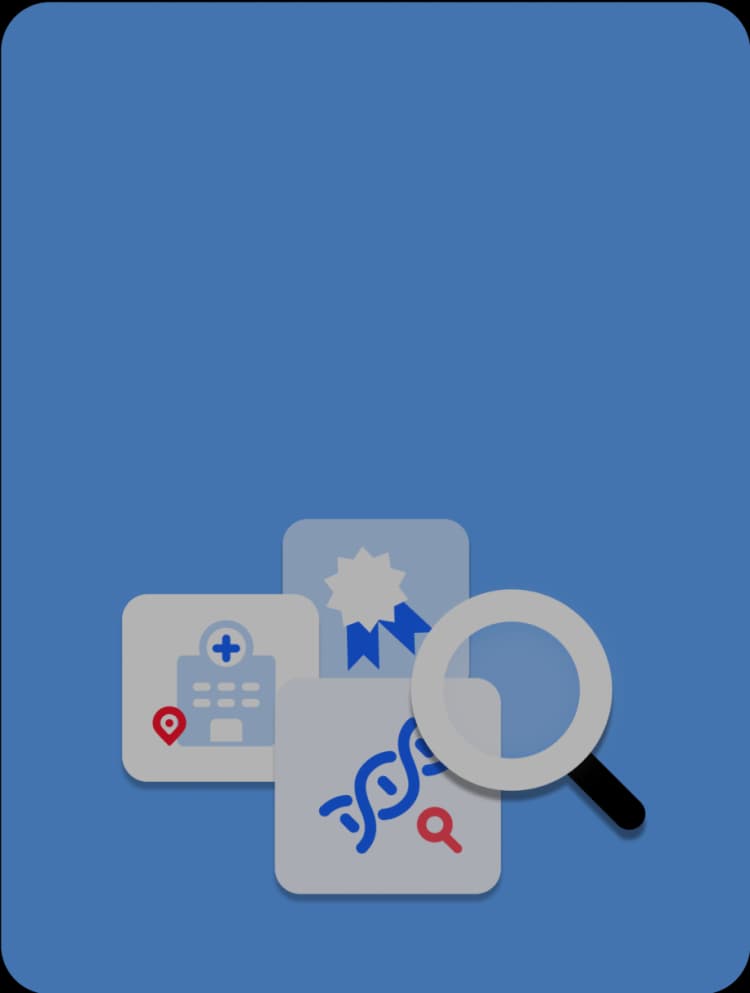Genetic Testing: What parents should know for my child
A doctor may recommend genetic testing for your child if they suspect that he or she has a genetic disease.
Let’s learn about when this happens and what you need to know to respond appropriately.

Why, when and which genetic testing is appropriate for my child?
Genetic disease in children
Genetic disease can appear in different ways in children, depending on the specific type and the severity of the condition. Some genetic diseases may be present at birth, while others may develop later in childhood or even in adulthood.
It is important to know that not all genetic diseases are inherited. Genetic disease can be caused by changes (mutations) in the DNA of a person’s genes. These changes can be inherited from one or both parents, or they can occur spontaneously (de novo) during the formation of sperm or egg cells or early in fetal development.
If a genetic disease is inherited, it means that the mutated gene or genes responsible for the disease are passed down from parent to child through the DNA in their cells. In some cases, a child may inherit one mutated gene from one parent and a normal gene from the other parent, and they may not develop symptoms of the disorder but be a carrier of the condition. In other cases, a child may inherit two copies of a mutated gene (one from each parent) and develop symptoms of the disease.
The symptoms of a genetic disease can vary widely depending on the specific disorder and the severity of the condition. Some genetic diseases may cause developmental delays, intellectual disability, growth problems, or other physical or medical issues. Others may affect the function of specific organs or body systems.
When might genetic testing be recommended?
Genetic testing can help identify changes in DNA that may be responsible for your child’s symptoms or medical condition. Here are some reasons why a doctor may recommend genetic testing for your child:
- Developmental delays: If your child is not meeting developmental milestones, such as sitting up, crawling, or walking
- Muscle weakness: If your child has muscle weakness or difficulty with movement, genetic testing may help to diagnose a neuromuscular disorder
- Seizures
- Intellectual disability
- Problems with vision and hearing
- Poor growth
- Heart rhythm problems
- Immune disorders
- Hormone abnormalities
- Unexplained medical conditions

Not all children with these symptoms will require genetic testing. The decision should be made in consultation with a healthcare provider who is experienced in genetic testing and counseling. They can help you understand the potential risks and benefits of testing and provide support throughout the testing process.
What types of genetic testing should be performed?
Sample type: DNA swab vs blood
Genetic testing can be performed on small samples of blood, tissue, or saliva. Above them, DNA swab and blood are commonly used for genetic testing, and the choice of which to use will depend on the specific needs of the individual being tested and the type of genetic testing being performed.
DNA swabs are non-invasive and easy to collect, but may yield less DNA and have limited testing options. Blood samples yield more DNA and offer more testing options, but are invasive and require a trained healthcare professional to collect.
3billion can analyze both types of samples, but considering the characteristics of patients with rare diseases, we recommend DNA swab samples for children’s exome sequencing.

Proper genetic testing types
Some look for specific variants or analyze specific genes. These tests, called gene panels, are used when the doctor ordering the test has a good idea of which genes are associated with a symptom or condition.
Other genetic testing analyze the whole genome (all the genetic code found in a person’s DNA) or the whole exome (all the genetic material that codes for proteins made in the body). These tests (whole exome and whole genome sequencing) are most often used when a doctor can’t find a cause for a patient’s symptoms or when symptoms are very broad and don’t point to a specific disease. Many rare diseases have been discovered through whole genome or exome sequencing.
In 2021, the American College of Medical Genetics and Genomics (ACMG) suggested the following: “We strongly recommend that ES/GS be considered as a first- or second-tier test for patients with CA/DD/ID”, where ES/GS means exome sequencing and genome sequencing, respectively. Here, CA, DD, ID means congenital anomalies, developmental delay, and intellectual disability, respectively.
There are more than 7,000 rare genetic diseases, and each one has so many different symptoms that it’s hard to predict exactly what it will be like. We, 3billion offer clinical exome and genome sequencing to provide the fastest and most affordable diagnosis in these cases.
What parents need to know more
Some parents may be hesistant to have their children genetically tested because of certain reasons such as emotional, psychological and financial concerns. However, it’s important to know that your doctor has found reasonable leads and suggested genetic testing, and that an accurate and early diagnosis of a rare disease can lead to more appropriate treatment and rehabilitation.
Healthcare providers need to provide proper information and support to parents to help them make the best decision for their child and family.
If you have any question about Rare Disease Genetic Testing,
Get exclusive rare disease updates
from 3billion.

YoonJung Shin
Content Marketer






